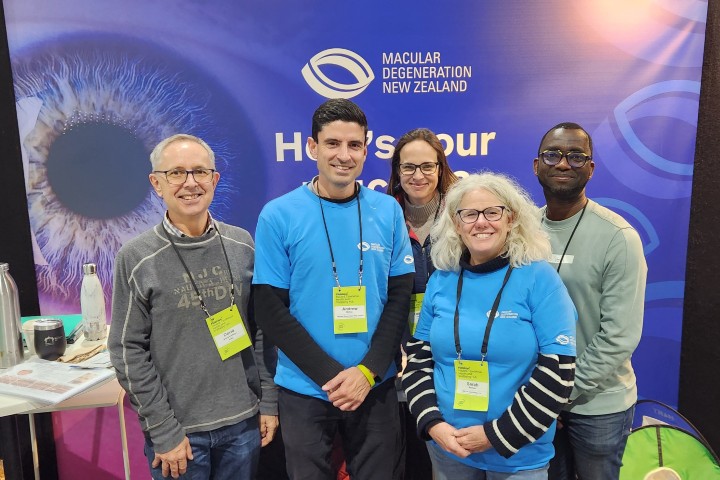Reflections on a life in optometry with Prof Bruce Evans
The author of four editions of Pickwell’s Binocular Vision Anomalies and more than 260 publications, clinical optometrist Professor Bruce Evans recently received a lifetime achievement award from the UK’s Association of Optometrists. In an interview about his career highlights, Drew Jones began by asking him what the award meant to him
I see this award as a recognition of the excellent teams I have worked with over the years. In over 90 research studies, I have had the privilege of collaborating with literally hundreds of very smart people. My favourite phase of a new study is inviting people I like and respect to collaborate. My aim is to never be the smartest person in the room and to have diversity – of background, profession and intellectual approach. It is great when a research study progresses our understanding, but invariably I learn as much from my colleagues as I do from our results!
Having dedicated a lot of time to the visual aspects of dyslexia, what progress have you seen?
It’s been 35 years since I started researching visual factors in dyslexia and it was interesting recently to undertake an updated literature review for our 2022 book Vision, Reading Difficulties and Visual Stress. The multifactorial model of dyslexia has at last gained traction and the debate has moved away from ‘looking for the cause of dyslexia’ to an understanding that there are many factors that sometimes contribute to dyslexic difficulties. Some of these can be to do with vision, but optometrists should not expect to cure dyslexia. Of course, a binocular vision anomaly, for example, may be a contributory factor and there will always be a role for optometrists to rule out visual problems.
Concerning the controversial area of coloured lenses, it seems that many of the early claims were exaggerated. For the modest proportion of children with reading problems who seem to benefit from coloured filters, it is good that in many countries this intervention is now prescribed by community optometrists as part of a holistic eyecare provision.
Some optometrists say they've been funnelled into becoming glasses salespeople. Do you know why dentists, for example, are perceived more as medical professionals than optometrists are?
I think you must have been talking to the wrong optoms! I think the profession has divided into two. For the more clinically orientated, there are now in most regions (of the UK) enhanced optometry schemes, where patients who would previously have gone to the hospital are now managed in the community by optometrists. The NHS (UK National Health Service) pays an enhanced fee for this and it has greatly expanded the scope of practice for many. In some areas, optometrists are involved in, for example, the co-management of diagnosed glaucoma cases, post-cataract surgery monitoring, low-vision aid provision and therapeutic prescribing. The effectiveness of these optometrists is reflected by a recent General Optical Council (the equivalent of the ODOB in NZ) survey indicating that a higher proportion of the public now views optical practices as their first port of call for eye problems, rather than a GP. In many hospital eye units, there are now optometrists at consultant grade who work alongside ophthalmologists treating, for example, glaucoma, age-related macular degeneration (AMD) and capsular opacification, and at the UK’s leading eye hospital, there are now optometrist-led glaucoma clinics.
At the other end of the spectrum, there are optometrists who have not seized the opportunities to expand their clinical work and are instead limited by the basic NHS sight test fee, at least for their NHS patients. Even for these practitioners, many now charge top-up fees for extra services, such as OCT imaging. Interestingly, there appears to be a growing number of optometrists who are leaving the NHS and concentrating on private patients, so they can provide OCT, widefield imaging and other services to all their patients.
Do you think the profession can counter the impact of screen-based life on the myopia epidemic?
Like most parents, my wife and I fought a losing battle against screen time! I explain to all children that, like a balanced diet for their general health, they need ‘balanced vision’ for healthy eyes. Close work and time indoors must be balanced with far vision and time outdoors. I think myopia control is the most exciting development in eyecare in my career. It has transitioned from an optometric specialism to a core optometric activity. We all need to engage in this, so that every myopic child is given the opportunity of myopia control.
Are there further scope extensions you would like to see optometrists embracing?
I enjoy working closely with excellent ophthalmologists and I greatly admire the amazing surgical work they do. Further scope extensions for optometrists will free-up ophthalmologists to concentrate on the increasing need for surgical interventions. I see optometrists’ role developing to encompass all eye diagnosis and treatment other than surgery. Some of these new optometric activities (AMD injections, selective laser trabeculoplasty) are likely to involve optometrists who work in hospital eye units. But for most other activities, I think we should aim to be doing as much as possible in the community. Covid taught us that if a healthcare intervention can take place in the community, it should. This is a safer environment and more convenient for patients. Our community optical practices are ideally placed for this expanding role.
Any advice for the graduating optom?
Look upon your graduation not just as the beginning of your career in optometry, but also as the first stage in your optometric education and qualifications. Think about what interests you most in optometry and pursue a higher qualification in that area. After you have achieved that qualification, ask the same question again and set your next goal. That way, you will always be as excited about optometry as you were when you started.
What’s next for you?
In the last few years, I have restructured my working week so I can spend more time doing the work that I want to prioritise and that I enjoy. So I am doing more research, more conference travel and more consultancy work. The sacrifice is fewer days in practice, but I still enjoy my clinical days. The consultancy work involves research and, increasingly, expert witness cases. With these cases, I enjoy the challenge of striving to attain an equitable outcome, both for patients and practitioners.
























